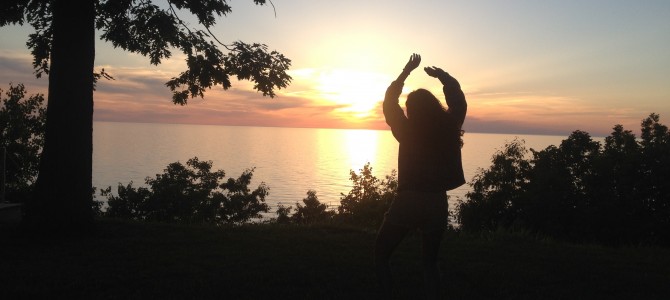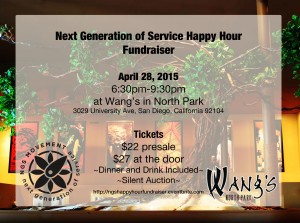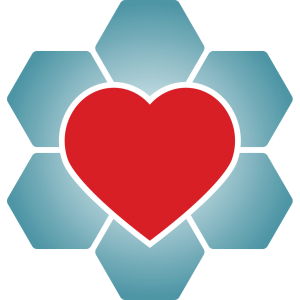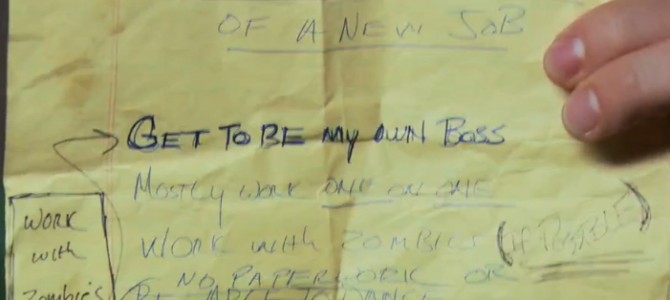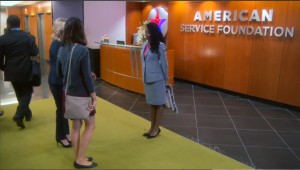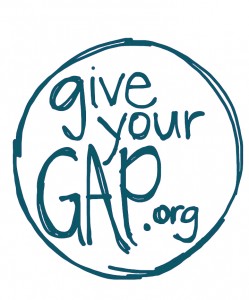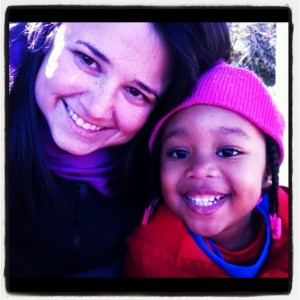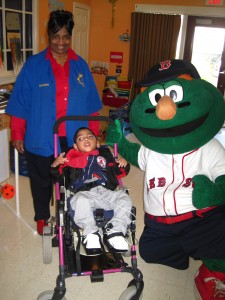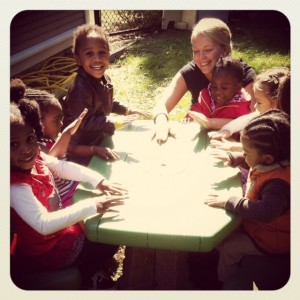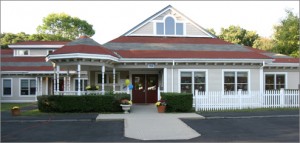Career Center Rebel is a guest blog series written by Erica Spiritos, a Soul Searcher and Idealist. Erica is bold and silly and in 2011 she started her journey to uncover her passion and place in the world as an unconventional engineer. We are re-posting pieces of her journey for other recent grads that can relate. Views expressed in these posts belong to Erica and may not reflect the views of the NGS Movement.
200 Days
Originally written on Thursday, August 25, 2011
Hello, again! I have just discovered that it has been exactly 200 days since I last posted. Occasionally, during these past 6 months and 19 days, something noteworthy would take place, or I would come to a realization of some sort, and I would consider writing about it to you all. But for one reason or another I would decide not to, and then I’d continue going about my day.
Sometimes I wonder if it is narcissistic to have a blog (is it of any use to anyone besides me?), but today I have convinced myself that it is worthwhile enough to be revived. And, consequently, today I am also wishing that I had a super power that enabled me to take snapshots of my mind whenever something noteworthy was taking place, or immediately following a realization relevant to this blog. I imagine those snapshots being “data photographs” that would make today’s revival so much easier! How cool would it be if I could simply download all of those snapshots onto my computer, and so instead of sitting here trying to recall all of the things I had, at one point or another, wanted to write to you all, I could double click and voila, remember everything and type madly away! Or better yet, I could just upload all of the photographs directly to the blog.
But this is not the way life works! And so, I will try to remember all of those snapshot moments, and begin transcribing them from pixels to words.
On your marks… get set… GO!
Just Apply, Already! And Also, More Confusion.
Originally written on Thursday, September 1, 2011
In the midst of all of this internal dialogue, confusion, and self-doubt, I applied for a bunch of jobs. On the Google homepage, I entered every permutation of the following keywords: water, environment, teaching, education, food, agriculture, policy, engineering, recent college graduate, unconventional, bicycle, non-profit, foundation, development, sanitation, public health, alternative energy, international, farming, organic, … you get the idea! I searched job-posting websites like environmentaljobs.com and read career blogs that featured a new, interesting job listing everyday. I tore out Outside magazine’s feature on the Top 50 Places to Work, watched TED talks to learn about interesting organizations, searched Idealist.org regularly, and filtered through career center websites at universities that promote opportunities in the non-profit world.
Here is a sampling of some of the jobs I applied to, people I emailed, and organizations I contacted:
(1) Nuru – non-profit that does development projects in Africa
(2) World Bicycle Relief – non-profit that hooks kids in Africa up with indestructible bicycles so that they can ride to and from school everyday
(3) Oxfam – non-profit working to find solutions to international poverty and injustice
(4) Water for People – non-profit based in Denver that designs and implements drinking water projects in developing countries
(5) The Green School – international school in Bali, Indonesia (constructed out of bamboo) that emphasizes holistic education
(6) Bicycle City – develops cities for people, not for cars. There’s one currently under construction in South Carolina.
(7) Mark Bittman – NY Times columnist who promotes health and sustainability in America through the lens of food and agriculture. (I sent him a few emails, to no avail.)
(8) National Geographic – one of the world’s largest scientific and educational organizations, promoting environmental and historical conservation and world culture through photography, journalism, travel, etc.
(9) World Resources Institute – independent, non-partisan, environmental think tank
(10) PEW Center for Global Climate Chance – think tank focusing on climate change
The list goes on. For the hell of it, and also because I thought it’d be awesome to learn how to farm, I applied for a job as garden staff at Blackberry Farms in Tennessee. I applied for the Global Health Corps to work with a public health non-profit in Africa. I applied to work for Conservacion Patagonica to help construct a National Park in Patagonia, and to the Oliverian School in New Hampshire – an alternative boarding school (located on a farm) for kids needing a different kind of educational environment. I applied to be a water engineer/scientist at Oklahoma University, and when I decided I might need to be more open-minded, I even applied to work at CH2MHill – a civil engineering company.
Throughout this process, I struggled to feel as if I had any sort of direction at all. I needed more experience to know what I wanted to do, and until then, I was just throwing darts at a board encompassing all of my potential interests, hoping that one or two would stick.
With graduation soon approaching, I had received no response from most (if not all) of the places I applied to work. This was quite frustrating – did they forget that there was a human being with feelings and a timeline on the other side of that email application? My most disappointing experience was with the World Resources Institute, where I had applied on April 6th for a fall internship. I sent personalized emails to the HR director, and asked a family friend if he would send an email on my behalf to a man he had worked with in the past who was now on the Board of Directors at WRI. I called and left voicemails for the HR director, and went down to DC to personally drop off my resume and cover letter. Even if I were completely under-qualified (I don’t think I was) for the position, I would have appreciated an email saying “Sorry, you’re not who we are looking for.” Is that so unreasonable? Is that too much to ask for?
There were moments when I definitely felt hopeless. Someone, please, explain how a graduate of Carnegie Mellon University could have so much trouble landing a job I’m excited about? Or feel so lost in this entire process? Was it naïve of me to venture out onto this unconventional path? Some of my friends were having success finding jobs at engineering companies – is this something I should reconsider?
* * * * *
On May 4th, I wrote the following journal entry:
I don’t know if I have ever felt in such a state of emotional flux as I do now. I keep going back and forth between feelings of happiness and excitement (which I have taken to be my normal self) and feelings of confusion, sadness and uncertainty. And I haven’t given myself enough time and space to sort through all of these feelings and understand where they are all coming from.
Firstly, I feel bittersweet about graduating from college, and beginning the next chapter of my life. I have grown so much in the past four years and I feel ready to take that jump into the “real world” (I hate that term), but the fact that I do not know where I will be or what I will be doing after I graduate makes it difficult for me to get excited about the next step. As I feel myself before more detached from my CMU community, I do not yet have a sense that I will land on 2 feet when it comes time for me to say goodbye to this part of my life.
Secondly, I am still very overwhelmed by the shear number of paths I might embark upon, and also concerned about the seeming elusiveness of all of the opportunities that I have tried, unsuccessfully, to reach out and grab. I could literally do whatever I want next year, and the infinite possibility has almost paralyzed me in a state of fear. What is worse is that I am so busy listening to other people’s suggestions that I haven’t really taken the time to sort through my own thoughts. For example, I applied to work at the World Resources Institute, and since then, got myself all excited about living and working in DC… but is that really what I want? To live in a city and work in an office building where people go outside for cigarette breaks and sit and a desk for 8 hours a day and wear nice, business attire?
One of the things I have learned about myself is that I can make myself happy wherever I am. Yes, I would love to live in a place where I can ride my bike everywhere and play outside in the mountains and breathe fresh air, but if that fantasy doesn’t becomes a reality for me next year, I know I will be able to supplement my experience with the things I need to make my life feel complete, whether it be weekend trips, yoga, etc. But why am I thinking about supplementing a life with things to try to make an okay situation better, when I’m not even tied down to an okay situation in the first place? Why don’t I just aim for a great situation! Okay, so what would this look like? What are my preferences?
Based on my preferences, I guess I should just keep opening doors that will lead me in this general direction, and eventually something will work out, right? But what if I continue to get no response? Where would I go and what would I do, if I have decided that I don’t want to go back to New York? Point to a place on the map, and move there? How far away do I want to go? Do I want to stay in the US? Do I want to stay close to my friends and family?
* * * * *
You can imagine just how confused I was feeling! I will tell you that this story has a happy ending (for now)… and I can say this because it is now September 1st, and I have had a great summer and I have a job that I am really excited about. But, I will save those stories for a later entry.
Summertiiiiiime
Originally writen on Thursday, September 8, 2011
In late February, it occurred to me that if none of my job applications were to prove fruitful, it would help my cause to find something totally kickass to do for the summer.
For me, summer has always been a time to explore: the world, my interests, myself. In the summer after my freshman year, I biked from Florida to California with an organization called Bike & Build, raising money and awareness for the affordable housing cause and building homes with Habitat chapters in different towns along our route. After sophomore year, I worked in a Microbiology lab at Montana State University in Bozeman, studying water contamination on the nearby Crow Reservation, and then traveled to Ecuador with Engineers Without Borders. After junior year, I had the opportunity to backpack in Chile and Bolivia with my first friend ever (we met when I was one week old, and she was two weeks old) and then worked in NYC for the Department of Parks & Recreation, designing rain gardens for city parks. While some were more transformative than others, these experiences have helped to clarify the things that I care about, and to formulate my personal and professional goals. If nothing else, I hoped that the summer after my graduation would direct me in a similar way.
So, in thinking about how I might like to spend the summer, I reflected on an experience I had during high school. For three weeks during the summer after 10th grade, I was a participant on a community service trip to the San Blas Islands of Panama, where we worked with the Kuna Indians to build a school out of local materials. The experience I had with The Road Less Traveled is etched in my mind as the one that sparked my interest in poverty-related issues overseas, and I thought that maybe, I could spend the summer igniting that same interest in the souls of other 16 year olds.
With this thought in mind, I applied to be a leader with the Road Less Traveled. The application, itself, took me almost a month to fill out, as I spent an obsessive amount of time answering 13 short answer questions. In five single-spaced pages, I described my energy level, my experience working with teenagers, my strengths and areas needing improvement, and my experiences traveling and working with indigenous communities.
To give you a sense of what I wrote, this was my response to a question on why I was interested in the position: “To me, the most appealing aspect of being a leader on a Road Less Traveled trip is the opportunity to engage interested and like-minded students in an on-going dialogue about the importance and complexity of service and inter-cultural interaction. I look forward to the chance to inspire young people to continue to lead lives of public service, with the understanding that a well-informed diagnosis of existing problems (within our own communities and elsewhere) is key to implementing sustainable and appropriate solutions. Additionally, I am excited to travel to places I have never been before, to think on my feet when conflicts or unexpected events arise (because I know they will), and to create a warm and welcoming environment for the students, so that they are challenged, and pushed beyond their comfort zones, but never feel unsafe.” As you can probably tell, I was thoroughly excited about this opportunity!
About a week after submitting my application, I had a really fun interview with the logistics director at RLT, in which we talked about my interest in the position, my values, my hobbies, ability to improvise, and how I would handle various social situations. What would I do if I found out kids were drinking alcohol on the trip, or having exclusive romantic relationships? The interview was nothing like anything I had ever done before – it was a challenging conversation in which I openly and honestly shared myself, my beliefs, and my experiences. And two weeks later, I was hired to lead one trip in Ecuador, and one in Colorado! What an incredible sense of relief I felt to know that I had a plan for my life after graduation, and with the big day just two months away, I felt like I could relax and breathe for a second.
Interestingly, it wasn’t until I arrived at staff training and was surrounded by 46 other leaders – likeminded in their passions and love for adventure – that I felt completely comfortable with my summer job. While my classmates seemed to be headed for the corporate world, I was preparing to sleep in a tent in the mountains of Ecuador and work with teenagers, and build bathrooms and paint educational murals at a small school. And when professors asked about my post-graduation plans, part of me felt proud and excited, and part of me felt embarrassed. What would they think of me if I spent four years getting an engineering degree from Carnegie Mellon only to spend the summer working as a camp counselor? There was no way, I felt, that I could relay to them how my experience in Panama had shaped my life, and how meaningful I anticipated this summer being. I see, now, that the reason I didn’t feel I could convince the world (friends, professors, strangers) that what I was doing was legitimate was because I couldn’t convince myself. I was not totally sure that this was the absolute best use of my time, and I wondered whether I wasn’t setting the bar high enough for myself to do something great.
I graduated from college on May 15th, and two weeks later, packed my red Osprey backpack (love that thing), and headed West to Colorado to take a Wilderness First Responder course (required for my job). There, I spent ten days getting to know a group of people passionate about adventuring in the great outdoors and sharing these experiences with others. We learned how to deal with altitude sickness, hypothermia, and heat shock, to fractures, dislocations, wounds, infections, burns, head injuries, chest injuries, lung injuries, seizures, asthma, strokes, and heart attacks… and that was just our trauma unit! Our medical unit covered mental health issues, abdominal pain, diabetes, asthma – to name a few. After the WFR course, I headed down to meet the rest of the leaders working for the Road Less Traveled (RLT). Staff training was absolutely amazing!! It was incredible to be surrounded by so many energetic, fun-loving individuals who all, in their own way, are eager to explore, learn, and contribute something meaningful to their communities. I felt I had truly met my people
In Ecuador and Colorado, I learned to balance the responsibility of taking care of a large group of teenagers with taking care of myself, understanding that my ability to do one was inextricably linked to my ability to do the other. During these trips, I worked 24 hours a day, 7 days a week, earning a whopping $2.08/hr, and had some of the most beautiful, challenging, peaceful and rewarding experiences – exploring new places with new people who soon became family, and exploring myself. I wrote more in my journal this summer than I had written in the past two years combined, and came back to New York at the end of the summer feeling like I had achieved a sense of clarity about my next step. I realized, also, that life (and my life’s work) is about the journey, not the final destination – about the process, not the product. i am slowly putting the pieces together, making personal connections, learning new things, experiencing new places… and for now, that’s valuable.
From Pawn to Player
Originally written on Sunday, September 25, 2011
While visiting friends in DC over Labor Day weekend, I spent a lot of time conversing about the disappointing state of our country, and the vast potential that CMU students seem to have to create positive change. At a party at his apartment, Brad Hall (Mechanical Engineer, 2010) mentioned to me his feeling that Carnegie Mellon should focus on how we can best prepare students to create jobs (rather than to get hired within an existing system/company). I thought this was wonderfully articulate and timely, and asked him if he wanted to write a blog post about this. We decided to write one together – it’s a dialogue. Enjoy, and please leave a comment with your thoughts!
* * * * *
Erica,
Carnegie Mellon is a place where people are given the opportunity to do what they want. It has been, for me, the perfect storm of freedom and opportunity. However, these gifts come with the ever-calling need to be exercised. The only true mistake one can make at CMU is to not explore the freedom and responsibility to make new, to become new, to embrace new. Everything else is second to that.
One surprising discrepancy is that CMU is touted as being a school where you go to get a great job. First of all, the meaning of greatness has a very limited scope if it can be achieved by obtaining steady and high paying employment. Second, why is it that all of our training asks us to build, discover, and create, yet we are satisfied with being an addition to someone else’s pre-existing creation? My whole college experience was a trial meant to teach me to trust myself to have the foresight to recognize opportunities, and the boldness to seize them. In an absence of that opportunity, I have been trained to make my own. That is the result of a CMU education.
So why are we content with the moniker of being a school that gets you a great job? Shouldn’t we strive to be the school where we create new jobs, new industries, and new value to the world? Our education expects us to be the job creators, not job consumers.
To be clear, I am currently employed by an engineering consulting company, and I am very honored by and thankful for that employment. If you, unlike so many of our peers, are also employed, you should count yourself lucky. However, if you are also like me, and are searching for the means to follow a passion or dream, you and I need to realize that dream jobs are not found, dream jobs are created. Created by you and me; created out of passion and desire.
Our education gives us the training required to make a passion into a career: the ability to forge the new from thin air. Boldness is the only additional ingredient required.
Be bold.
Brad,
Amen! I agree with you on all counts, and perhaps your vision is, in fact, within the realm of possibility in the not-so-distant future. I feel incredibly fortunate to have had a Carnegie Mellon education that has provided me the tools to create a life for myself, rather than to be a victim of circumstance (and a depleted job market). But I am also really lucky in that I have a safety net to fall back upon in the case that my boldness cannot immediately provide me with the resources to be financially independent, just yet. I have no loans to pay, and my parents are supportive of my idealistic desire to make the world a better place, even if that means I’m borrowing money from them until I can support myself.
That said, I am also aware that not everyone has this safety net, and that a lot of people can’t afford to spend time after graduation creating a job for themselves. By and large, we don’t have (or make) the time to think about how we might best apply our skills and interests toward bettering our community, our country, our environment, and our world. And so what ends up happening is that we float from one system (the educational system) to another (the occupational) as a pawn in a very large game of chess, in which we are not in control of our next move, our path, or our final destination.
If we were to transition from the pawn to the player, we would gain a big-picture perspective on the current state of the board, and perhaps be able to develop a better sense of how we want to play the game. Or maybe, we’ll decide to play another game altogether. How would we go about doing this? Conceivably, Carnegie Mellon could encourage entrepreneurism (and it does, through the Kaplan Fund), and the Career Center could help connect students to each other who are passionate about similar causes, and might want to work together to bring something new into the world. What else?
My other thought, to play devil’s advocate, is that there is something to be said about changing the system from within. The current systems we are working with (political, agricultural, education, economic) are lumbering giants deeply rooted in our way of life, and a small non-profit organization does not have the resources to pick a fight. A lot can be done by CMU graduates who work for corporations within these systems if they are willing to share their CMU spirit and challenge the way things are currently done.
Erica,
The analogy is perfect: going from being the pawn to the player. How does that look from a community perspective?
First, I think it takes more recognition and encouragement of our already existing entrepreneurial enterprises. As people start to venture out to make their own changes, we need to recognize them, support them, and give them the resources to continue on their way. Carnegie Mellon is already making huge strides and deserves a lot of credit. The culture needs to shift from the worship of large industrial companies and job fairs that serve the mass and more towards a culture of design which serves the individual. The questions we should ask students should start with their goals, and move towards the practical. What do you want to accomplish? What path do you envision to get there? What skills and assets do you have that will help you on the path? What ones do you need to learn/acquire/collaborate with? Where will you acquire capital? Who is your target market?
I think CMU is doing a better and better job of asking these questions.
The second part, is instilling confidence. Even with all of the help and support and recognition CMU can give to its young entrepreneurs, they must still thrive in the free market. That means finding space for your work, finding people who want it, and finding a way to make a profit off of what the work is worth in the free market. That is no simple task. So help can go a long way, but in the end it’s up to the individual, or the group, to make it on their own. I think of the academic model at CMU. Difficult classes, challenging tests. The student must, in the end, face these challenges alone. The hidden part is all of the resources that are at a students disposal to accomplish and achieve through the academic rigor. And I think that is what it really means to survive in the free market. The path is difficult, and you have to walk it. But if you have the intelligence to look around you, there are tons of things that can help you achieve your goals. It’s a combination of knowing your own abilities, and knowing you have can find help when you need it.
That should be the thing a student walks out of CMU with. A job is great, but self-confidence is infinitely more valuable.
Leap of Faith
שלוםandمرحبا !
Originally written on Sunday, April 28, 2012
Last spring, I began my quest for the unconventional, high-impact, post-college adventure, and now, one year later, I am writing to you from Kibbutz Ketura in the Arava Valley of southern Israel. My home is running distance from Jordan, and a 30 minute drive from both the Jordanian and Egyptian border crossings. There are big and beautiful desert mountains in my backyard, in which I like to frolic at all times of day and night. In my immediate community, I co-habitate with Israelis, Palestinians, Jordanians, Americans, one Finnish guy, a Brazilian, an Argentinian, a French woman, a South African, and a Canadian. And in my larger community, we eat cucumbers and hummus together in the dining hall and put our laundry in a shared system. There are families with beautiful children running around and giving out hugs, and soccer tournaments, and volunteers milking cows and working in the date orchard, and Shabbat dinners, and holiday celebrations, and camels. But let me back up…
In between the Ecuador and Colorado trips I led with RLT (see post: Summertime), I applied for a couple more jobs: to help build a new National Park in Patagonia; to work on an eco-village in Panama; to be a math teacher at the Green School in Bali, Indonesia. And then I applied for one more: an internship at the Arava Institute for Environmental Studies, an environmental, peace-building institute where forty 20-30 year-old Israelis, Palestinians, Jordanians, and Internationals come together to learn about and address regional environmental issues.
I first learned about AIES from a mass email I got (note: mass emails may hold the key to help unlock your destiny!!) from the environmental organization at CMU called Sustainable Earth, promoting a summer program through Dickinson College to study scarce resources at the Institute. I had actually applied to the summer program (to which I was not accepted… as I missed the memo that it was targeted to professionals and not recent graduates) and then decided to revisit their website to see if they offered internships. Turns out that they DO!, and the experience described on the website seemed to encompass many things I was looking for: it was international, environmental, agricultural, people-oriented, intellectually challenging, water-related, in a beautiful and natural location, not purely a desk job, etc.
So I applied, and a couple weeks later, I was offered the internship with the Center for Transboundary Water Management at AIES, to work with Clive Lipchin – an expert on water policy and management in Israel and the Middle East region. I got my Visa and on September 11th I hopped on a plane (along with many Orthodox jews) to the holy land.
I arrived to this foreign place after a ten hour flight on which I did not sleep, in a new time zone seven hours ahead of New York, and without a cell phone or an understanding of the language. I was exhausted and overwhelmed and nervous and lonely, and after a train ride from the airport to the bus station, and a five hour bus ride to the kibbutz on which the Institute is located, I reached my new home and practically burst into tears. Well that’s not exactly true. First we played ice breakers and met the program coordinators. Then I couldn’t remember anybody’s name. Then I entered my room. Then I smelled my room. Then I saw the nakedness of the walls and the ugly curtains. Then I burst into tears.
WHAT WAS I THINKING??! WHY did I decide to go so far away from everything I knew!!? WHAT ON EARTH was I doing here?!? I remember calling my mom on Skype and her telling me to take a shower, relax and go to sleep, and that when I woke up in the morning it would feel better. Then I chatted online with a friend who had spent two years in the Peace Corps in the Dominican Republic, and had just moved to Peru on a Fulbright scholarship a couple weeks earlier. He assured me the same thing: the first couple days in a new country are a rough adjustment… it’s normal to feel like you made THE BIGGEST MISTAKE OF YOUR LIFE. But it gets better.
Aaaaand I hereby declare to you that it TOTALLY DOES.
Dear Graduates,
Originally written on Monday, April 30, 2012
This post is dedicated to all of you who are getting ready to graduate from the University Bubble.
As some of you might recall from reading my earlier posts, as I prepared to graduate from college I felt like a lost, little black sheep. Throughout the year, my classmates had been preparing for job fairs and applying for positions with prestigious companies, and I was…. not. And beyond this, I often felt unsupported by the engineering school which seemed to be so traditional in the types of career paths for which it advocated. There seemed to be no framework set up to help someone like me. Maybe there really was no framework, or maybe I just couldn’t see it, but the funny thing is that since graduating, I have been asked many times by staff and administrators to share my “unconventional” story. In the past year, CIT has published a story about me called A Career Without Borders, and my experiences have been highlighted in the engineering brochure distributed to prospective students, and also in a brochure on Women in Engineering. I’ve also received emails from CMU students I’ve never met, asking about some of the things I’ve done and how they can get involved in similar projects and organizations.
The point is not that I’ve received all of this recognition. The validation feels good (although I am personally working to not be dependent on this kind of external approval) but more importantly, it just goes to show CMU really respected and had faith in me all along and that people who follow their heart and listen to their own voice are respected. It doesn’t matter so much what you do; what matters is who you are, and, as Thoreau said, whether you go “confidently in the direction of your dreams.” It is scary to stray from the beaten path. I remember I felt like I had just jumped into the deep end, and was feverishly treading water just to stay afloat because I didn’t have a plan. It was exhausting. But finally I stopped searching anxiously for a lifeguard or something to grab onto and I realized that if I just extended my legs, I could stand up on firm ground. I was liberated; I took my first strokes and set off on my journey.
One of the things I appreciate most about the four years I spent at Carnegie Mellon is that I’m still connected - even though a year has passed and I’m an ocean away. Yes, I am still subscribed to the Engineers Without Borders mailing list, and I still get emails from Sustainable Earth and CIT (the Engineering school) and general updates about the University and Alumni Events. But more significantly, I’m in regular correspondance with the mentors with whom I developed close relationships during my time in Pittsburgh. And now, as I prepare to take another leap of faith when my internship comes to an end next month, these connections provide me with ideas and support for the next stage of my journey.
In a couple weeks, you will take your first leap of faith. Up until this point, the “system” has pretty much decided for you that you will go to school between September and May, and you will have the summers free to make mini decisions about how to spend your time. But now there’s no more system – no more structure. Whether or not you have a map of what lies ahead, trust yourself and know that soon you will land on two feet. And in the meantime, while you’re treading water, remember the resources and relationship that you established over the past four years – they will be your lighthouse.

